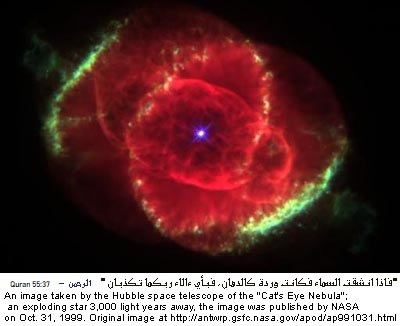Back to WF
Encyclopedia Index
Go to Recommended
Readings on this topic
Go to Suggested
Class ActivitiesBasic
Concepts and Definitions
Career stages are typically
defined as evolutionary phases of working life. The concept of career stage evolved as
psychoanalysts (Erikson), developmental psychologists (Buehler, Levinson, Piaget), and
sociologists (Form, Miller) independently studied stages of life and work (Super, 1957).
Developmentalists concentrated on stages of psychological development while sociologists
identified periods of individuals' working lives, and by combining these two foci career
stages first emerge in the literature. For example, the Exploratory Stage defined by
Buehler (1933), a German developmentalist, and the Initial Work Period classified by
sociologists Form and Miller (1949) both describe the experience of adolescents'
exploration of work. As a developmental stage, the Exploratory Stage represents the time
period in which adolescents define their adult identities through spousal, social, and
career choices, while the Initial Work Period describes the first jobs adolescents take to
explore the world of work. In this way, the contributions of both psychologists and
sociologists created a framework for understanding careers using the concept of career
stage. However, while these early models of career stage provide a useful structure to
conceptualize career development, many of the early theorists assumed career stages to be
linear and stable. Current researchers (e.g., Hall and Schein) have updated the concept of
career stage to encompass modern, varied patterns of career development. These patterns
tend to be more fluid and dynamic.
Importance of Topic
to Work-Family Studies
Career stage is one way of
thinking about career development, and in the work/family context it is most related to
the career development of women [see entry, Career
Development of Women]. It is widely recognized that women's career development is
significantly affected by family responsibilities, and it follows that women also
experience career stages uniquely as a result of work/family conflict. An understanding of
career stage helps to frame the career development challenges women face as they progress
from the early stages of career exploration and career choice to pre-retirement and
retirement decisions.
Women progress through
careers at different rates and in varied succession depending on a number of unique
factors, such as family status. For that reason, it may be more useful when studying
work/family issues to use stage theory that is independent of age rather than to use
age-based stages. For example, while men typically enter and exit the career exploration
stage during adolescence, women may experience this stage during mid-life for the first
time, or they may re-enter exploration as childcare responsibilities decrease. Similarly,
the retirement stage is based on the premise that a man has a lifelong career while women
may "retire" or intermittently leave the labor force as pregnancy or other
family obligations arise.
Further, family life stage
often parallels the career stage of the individual. For instance, the demands made at work
as one moves through career establishment occur concurrently with the demands made on the
family as children are born and begin school. As Yohalem (1980) pointed out in a follow-up
study of Ginzberg's educated women, career progress is often dependent upon full-time,
full-year employment. Thus, family members who are equally committed to career and family
often fit the "interrupted" career pattern described by Super. Schwartz (1989)
aptly identified this phenomenon in "The Mommy Track," while Evetts (1994; in
Nicholson, 1996) noted that careers which do not follow a steady pattern of continuous
service and regular and steady promotion are likely to be considered
"imperfect."
Increasingly, men are also
adapting their careers to participate more fully in the parenting role. As the work/family
field in general becomes less gendered, progressively more men will enter the discussion
of how family demands affect their career development, and thus, career stages.
State of the Body
of Knowledge
Career stage theory differs
from other models of career development in that the assumption is made that stages are
discrete, that they build on former stages, and that there are one or more developmental
tasks appropriate to each stage. For the most part, stage theory has been applied to men,
and little longitudinal research has been done to validate specific career stage theories.
(Only the Career Pattern Study conducted by Super and his longtime colleague was designed
to test stage theory.) As in other types of stage theories, theorists differ in how they
demarcate stages. Some authors use chronological age as bounds, whereas others use task or
more generic markers. Naturally, career stages which are closely related to age or life
stage are more strongly associated with developmental theories, while age-independent,
task-relevant stages are derived from a more sociological or economic foundation. Further,
as one would expect, the focus of interest shifts from the individual to the
organizational or societal level, depending on the discipline of the theorist.
Initial work on career
stage was developed by sociologists Form and Miller (1949) who posited the preparatory
work period, initial work period, trial work period, stable work period, and retirement.
Super (1957) borrowed from that sociological approach as well as from Buehler's (1933)
more general developmental theory, to posit and test his initial career stages:
exploration, establishment, maintenance, and decline.
Although career patterns
are not always related to stage, they often are associated. For example, when Super talked
about women's career patterns (stable homemaking, conventional, stable working, double
track, interrupted, unstable, and multiple trial), it is evident that stage is implied. It
is apparent that Super made the assumption that homemaking should be the primary life role
for women, and that entering into the labor force would be somewhat unusual and likely to
parallel the less successful career patterns described for men.
Career Stage Research
by Theorist
Erik Erikson
(Psychoanalytic psychologist)
Erik Erikson (1950) described eight stages of the human life cycle, from infancy to old
age, with each stage marked by a crisis that individuals must resolve before continuing to
the next stage. The fifth stage, identity versus role confusion, is designated as most
central to developing an occupational identity, whereas his seventh stage, middle
adulthood (40-65), has as its conflict generativity verses stagnation, which refers to a
person's ability to care for another person. The most important event in this stage is
parenting. Does the adult have the ability to care and guide the next generation?
According to Erikson, "A person does best at this time to put aside thoughts of death
and balance its certainty with the only happiness that is lasting: to increase, by
whatever is yours to give, the good will and higher order in your sector of the
world". Generativity can also be seen at work; it is during this stage that
individuals are more likely to become mentors and leaders and begin to think about
succession planning if the work calls for it.
Douglas T. Hall
(Organizational psychologist)
Hall documented the transition of the classic, linear model of career stage to a modern
view of careers as a series of dynamic, interrelated experiences in his book, The Career
is Dead, Long Live the Career (1996). He coined the term "Protean Career" which
refers to the concept of the individual as the driver of the career rather than the
organization [see Protean Career entry in the Work-Family Encyclopedia]. Hall's work
describes the changing contract between employer and employee and its effects, such as an
increased frequency in job and career changes and ultimately, less organizational
commitment. This transformation has permanently altered how individuals (male or female)
move through their careers, and how modern theorists define career stages.
Daniel Levinson
(Developmental psychologist)
Daniel Levinson (1986) focused on relatively universal, age-linked developmental periods
that unfold in an orderly sequence and cluster around four eras of the human life-cycle:
pre-adulthood, early adulthood, middle adulthood, and late adulthood. Each era (sometimes
referred to as "seasons" or "times of life") is characterized by both
stable and transitional periods in which there is either pursuit of life values or
questioning of the status quo leading to a reappraisal of one's life. Levinson has taken a
stage approach to career development in adulthood, and has written about both men and
women. One of his major contributions to stage theory is the identification and
explication of transitional stages (1978). Transitions are likely to occur more than once
and permit us to think about re-exploration and re-establishment. This idea of
recapitulation is echoed in other general developmental stage theorists' work, such as
Erikson (1963), and is more inclusive of women's career development.
Edgar Schein
(Organizational psychologist)
Although not a model of career stage, Schein's "career anchors" have provided a
conceptual understanding of individual career development within the current reality of
impermanent organizational ties. Schein posits that an individual's self-concept, basic
values, motives, and needs serve to provide a foundation from which to make difficult life
choices, including decisions regarding career and family.
Gail Sheehy (Journalist,
popular author)
In her book Passages, Gail Sheehy (1976) appealed to a wide audience and
popularized life-stage theory. Informed by Levinson's work, she identified life stages as
Pulling Up Roots (18-22), the Trying Twenties (22-29), Catching Thirty (approaching 30),
Rooting and Extending (early 30's), the Deadline Decade (35-45), and Renewal and
Resignation (mid-40's). She describes passages as the transitional periods between life
stages. Although they are difficult for most adults, they also provide the necessary
impetus for growth as one gives up the securities of one stage in order to move on to the
next. Sheehy's life stages are highly relevant to the discussion of career stage because
she marries developmental tasks with corollary career tasks, such as the duality of the
search for identity and career.
Donald Super (Counseling
psychologist)
Donald Super (1980) said that career development takes place across one's entire life-span
and can be divided into five stages or "maxicycles": Growth (4-to13);
Exploration (14-to-24); Establishment (25-to-44); Maintenance (45-65); and Disengagement
(65 and over). Like Erikson, Super postulated that not everyone progresses through these
stages at fixed ages or in the same fashion, and that within each stage are tasks whose
mastery allows people to function successfully within that stage while preparing them to
move on to the next task. Before entering the Maintenance stage, many individuals are in
the process of asking the standard mid-life question, "Do I want to do this job for
the next twenty years?" eventually deciding to either hang on or let go. If they
decide to hang on, they enter the Maintenance stage. If they decide to let go and change
job, company, or career, they recycle back to earlier stages, crystallize new career
development objectives, and move forward from there. For those who hold on, they maintain
what they have, update their skills and knowledge, and innovate.
Career Stage Research
by Age
Childhood
Gottfredson's theory of conscription and compromise (1996) is the only career stage theory
applied to children. She defined 4 stages. During stage 1 (ages 3-5), children develop an
orientation to size and power. In stage 2 (ages 6-8), children construct their tolerable
-sextype boundary. Stage 3 (-13) entails orientation to social valuation, and in stage 4
(ages 14 and older) adolescents develop their orientation to the internal, unique sense of
self (Swanson & Fouad, 1999).
Early adolescence
The developmental career task of early adolescence is exploration, typically done in
conjunction with school and family. Little research has been done on this age group, and
most of the literature is about programs that are designed to increase adolescent
exploration of the world of work.
Late adolescence
During this period, the construct of career maturity is added to exploration, i.e., the
idea that there are age-appropriate skills to be mastered at every career stage.
Considerable research has been done on this construct. Findings of the research in this
area have included the notion that career maturity increases with age (Patton & Creed,
2001), is positively correlated with optimism (Creed, et al. 2002), and is related to an
extroverted adjustment style and positive orientation to social norms (Savickas et al.,
2002).
A measure of career
maturity that has been widely used by researchers in this area is the Career Maturity
Inventory (CMI), which as developed by John Crites in 1973 and revised by Crites &
Savickas in 1996. The CMI contains attitude and competence scales which are combined to
obtain an overall career maturity score.
Young adulthood
During this period, the most significant developmental task is establishment. Young adults
experience a series of "trial" jobs before more firmly establishing themselves
in a more stable career. This process of establishing oneself is the primary task
associated with young adulthood, and once stabilized, consolidation and advancement become
the next developmental tasks. Several important concepts surface during this period of
life, including career adaptability and career adjustment. In addition, gender differences
become apparent as men and women choose whether or not to follow paths congruent with
traditional gender roles.
Middle adulthood
Levinson's Mid-Life Transition era, characterized by reappraisal, stress, angst, or
freedom, begins in middle adulthood. "What have I done with my life? or "What do
I truly want?" are often questions asked during this period of time (see also Luke 2:52: GOD forgave Jesus). For men, state
of health or career accomplishment may predominate. Levinson posits that the reason for
this fixation on reevaluation is based on three factors that occur around this period of
time: first, a modest decline in body functioning that may be interpreted as a loss of
vigor as well as a reminder of one's mortality; second, an age shift that occurs as
younger people regard individuals aged in the 40's to be of "another
generation"; and third, a reflective examination of their youthful dreams. Women, on
the other hand, may perceive this era as an opportunity: one to pursue either personal or
career development goals now that their childbearing role has peaked.
Older workers
Although little research exists on career stage as adults approach retirement,
developmental stage in general is implicated. Older workers' psychosocial developmental
stage, according to Erikson (1950), is ego integrity versus despair. The basic virtue is
wisdom (Erikson, 1963). This stage implies self acceptance. As workers age, it is
manifested through different career choices and changes to the definition of career
success (DBM, 2001). Older workers are more likely to consult, seek self employment,
perform community service, and they are more likely to work part time (DBM 2001).
Older workers' attitudes
toward career development activities and mobility relate to such factors as current
employment (experience or fear of lay-offs), tenure or stage in their careers, need for
achievement, and need for growth. In addition, fear of stagnation, marketability
perceptions, self esteem, and job market conditions play a role in career decision making.
A decision to engage in training or retraining can lead an older worker to identity growth
and enhanced self-esteem which in turn may result in greater commitment to future
career-development goals.
In a recent longitudinal
study, however, Roberts & Friend (1998) found that subjective career momentum (in
contrast to objective indices of career plateau) in women in their early 50's (N=83) was
associated with work as central to identity. These women were in high status jobs and had
higher scores on measures of psychological and physical well-being. These findings are
consistent with the idea that women's career stages may differ from men's.
Part-time work is an
increasingly important phenomenon among older workers. More than a third of retirees want
to work part-time for "interest and enjoyment" (Roper, 2002). This reflects a
relatively new and increasingly common set of circumstances among late-stage workers,
"bridge jobs." This category of jobs offers new experiences, provides
flexibility, and bridges the gap between careers or before leaving the workforce
permanently.
Implications for
Practice and Research
The majority of the work
written on career stage results from studies of men, and much of that research was done
prior to 1990. While the career development of women has been explored, the concept of
career stage as uniquely experienced by women is not addressed in the literature. With the
exception of Levinson and early writers who wrote brief journal articles postulating
career stages for women (e.g., Zytowsky, 1969 and Psathas, 1969), no serious attempts have
been made to differentiate women's career stages from men's. Researchers have explored the
differences that mark women's career development experiences but that uniqueness has not
been adequately reflected in the study of career stage.
Women continue to perform
the majority share of household and childcare duties, and the impact of those family
responsibilities on career stage needs to be studied. Possible topics for further
exploration include the formation of new career stages based on women's unique needs,
varied career stage patterns of women, and the effect of modern family structure and
dual-career families on men's career stages.
Stage theory is also
traditionally based on the assumption that an ordinary career takes place over time in
relatively few organizations. Hall's concept (1996) of the Protean Career (i.e., a
boundaryless career based on skills and abilities that function independent of specific
organizations) calls prior stage theory of adulthood into question. As the career becomes
more internally defined, stage theory will focus more on internal, individual
decision-making processes rather than the relationship of the individual to an employer.
References
Buehler, C. (1933). The course of
human life as a psychological problem. Leipzig, Germany: S. Hirzel. (2nd ed.,
Gottingoen: Hogrefe, 1959).
Creed, P. A., Patton. W., &
Bartrum, D. (2002). Multidimensional properties of the LOT-R: Effects of optimism and
pessimism on career and well-being related variables in adolescents. Journal of Career
Assessment, 10(1): 42-61.
DBM. (2001, August). Career
choices and challenges of younger and older workers. New York: Drake Beam Morris.
Erikson, E. H. (1950). Childhood
and society. New York: Norton.
Erikson, E. H. (1963). Youth,
change, and challenge. New York: Basic Books.
Form, W. H., & Miller, D. C.
(1949). Occupational career pattern as a sociological instrument. American Journal of
Sociology, 54, 317-329.
Gottfredson, L. S. (1996).
Gottfredson's theory of circumscription and compromise. In D. Brown, & L. Brooks, et
al. (Eds.), Career choice and development (3rd ed.), pp. 179-232. San Francisco:
Jossey Bass.
Hall, D. T. (Ed.). (1996). The
career is dead, long live the career. San Francisco: Jossey-Bass.
Levinson, D. (1986). A conception of
adult development. American Psychologist, 41(1): 3-13.
Levinson, D. (1978). The seasons
of a man's life. New York: Knopf.
Nicholson, P. (1996). Gender,
power, and organisation: A psychological perspective. New York: Routledge.
Patton, W., & Creed, P. A.
(2001). Developmental issues in career maturity and career decision status. The Career
Development Quarterly, 49(4): 336-351.
Plimmer, G., & Englert, P.
(1997). Downsizing and vocational guidance: The erroneous interest in interest inventories
and possible selves. In G. M. Habermann (Ed.). Looking back and moving forward: Fifty
years of New Zealand psychology, pp. 215-223.
Psathas. (1969). Psathas, G. (1968).
Toward a theory of occupational choice for women. Sociology and Social Research, 52,
253-268.
Roberts, B. W., & Friend, W.
(1998). Career momentum in midlife women: Life context, identity, and personality
correlates. Journal of Occupational Health Psychology, 3(3): 195-208.
Roper. (2002). Staying ahead of
the curve: The AARP work and career study. Washington, D.C.: Roper Starch Worldwide
& AAARP.
Savickas, M. L. (1997). Career
adaptability: An integrative construct for life-span, life-space theory. Career
Development Quarterly, 45(3): 247-259.
Savickas, M. L., Briddick, W. C.,
Watkins, C., & Edward, J. R. (2002). The relation of career maturity to personality
type and social adjustment. Journal of Career Assessment, 10(1): 24-41.
Schein, E. H. (1996). Career anchors
revisited: Implications for career development in the 21st century. Academy of
Management Executive, 10(4) 80-89.
Schwartz, F. (1989). Management
women and the new facts of life. Harvard Business Review 67, 1.
Sheehy, G. (1976). Passages:
Predictable crises of adult life. New York: Dutton.
Super, D. E. (1957). The
psychology of careers: An introduction to vocational development. New York: Harper.
Super, D.E. (1963). The definition
and measurement of early career behavior: A first formulation. Personnel and Guidance
Journal, 41, 775-779.
Super, D. E. (1980)A life span, life
space approach to career development. Journal of Vocational Behavior, 13, 282-298.
Yohalem. (1979). The careers of
professional women. Montclair, NJ: Allanheld Osmun.
Yohalem, A. M. (1993). Columbia
University graduate students, 1945-1951: The vanguard of professional women. In K. D.
Hulbert, & D. T. Schuster (Eds.). Women's lives through time: Educated American
women of the twentieth century. San Francisco: Jossey-Bass.
Zytowski, D. G. (1969). Toward a
theory of career development for women. Personnel and Guidance Journal, 47,
660-664.
Zytowski, D. G. (Ed.). (1968). Vocational
behavior: Readings in theory and research. New York: Holt, Rinehart, & Winston. |




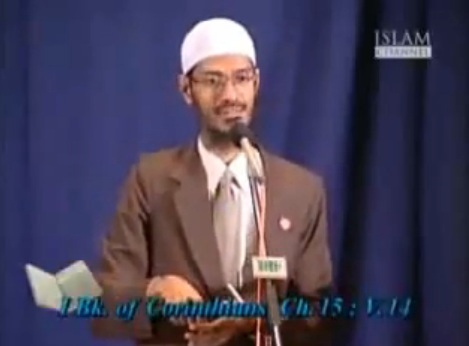



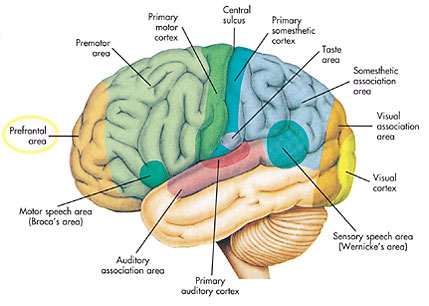

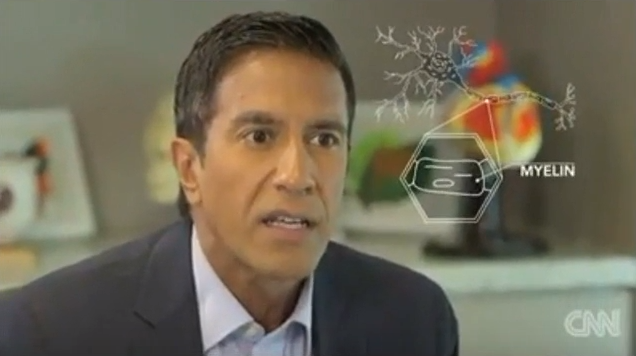



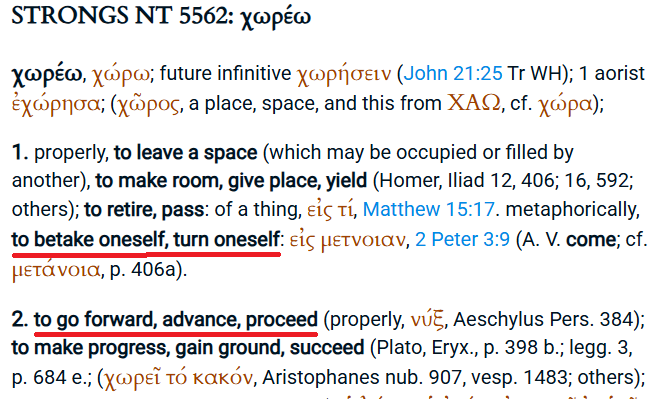


.jpg)

